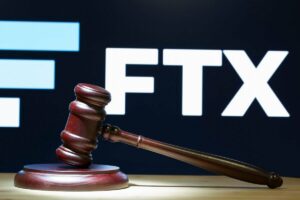
Bankruptcy attorneys representing clients affected by the collapse of the cryptocurrency exchange FTX 17 months ago have announced that the overwhelming majority of those impacted will be reimbursed for their losses, plus interest.
This development follows the conviction of FTX co-founder and former CEO Sam Bankman-Fried (SBF) six months ago on seven charges of fraud, conspiracy, and money laundering, after approximately $8 billion of customer funds disappeared. In March, SBF received a 25-year prison sentence and was ordered to forfeit $11 billion. He appealed last month, initiating a legal process that could extend for years.
Restructuring: After FTX declared bankruptcy in late 2022, SBF resigned, and John J. Ray III was appointed as the new CEO and “chief restructuring officer” to manage FTX’s restructuring. Ray testified shortly after his appointment that he mistrusted all the company’s existing records. His team then pursued the recovery of the missing funds, which included $8 billion invested in real estate, political contributions, and venture capital, such as a $500 million stake in AI firm Anthropic before the surge in generative AI, which was sold by the FTX estate earlier this year for $884 million.
Initially, there was little hope that investors would recover significant amounts of their money. However, recent developments indicated potential positive outcomes, as efforts to reclaim funds through various investments and from company executives began to bear fruit.
Today, a press release from the FTX estate revealed that 98% of FTX creditors are set to receive 118% of the value of their assets stored with FTX in cash. The remaining creditors will get 100% of their assets back, plus “billions in compensation for the time value of their investments.”
Overall, FTX plans to distribute between $14.5 billion and $16.3 billion in cash, which includes assets currently managed by entities such as chapter 11 debtors, liquidators, the Securities Commission of The Bahamas, and the United States Department of Justice, among others.
While the reorganization plan will need approval from the relevant bankruptcy court, the intention, they say, is to resolve all ongoing disputes with stakeholders and government, “without costly and protracted litigation.”
It is worth noting here that creditors won’t benefit from the Bitcoin boom that has emerged from the crypto industry since FTX went belly-up. At the time of its bankruptcy filing, FTX had a huge shortfall in Bitcoin and Ethereum — far less than customers believed it actually owned.
As such, the appreciation in value of these tokens won’t be realized as part of this settlement.















































